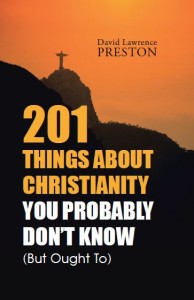Not many people realise that the entire New Testament was originally written in Greek – a language that Yeshua and his disciples barely knew (if at all). Their everyday tongue was Galilean Aramaic. They may have understood a smattering of Greek since Sepphoris, the capital of Galilee and just a stone’s throw from Nazareth, was on the main trade route from Greece to Asia Minor.
Most Jews also learned Hebrew so they could understand the scriptures, just as Muslims today learn Arabic to read the Qu’ran. Yeshua would also have needed Hebrew to communicate with the temple dignitaries in Jerusalem who would surely not have spoken Aramaic. We don’t know if he spoke Latin, the language of the Romans. Probably not, which poses an interesting question – how did he communicate with Pontius Pilate, the Roman Prefect, if indeed he really did (and there’s plenty of doubt)? Pilate may have spoken some Greek, but it’s unlikely they could have held a detailed conversation.
The implications are clear. Since the entire New Testament was written in a language foreign to Yeshua and the poor, illiterate Galileans with whom he associated, all reported speech in the gospels must be at least a third-hand translation of what was actually said. Or, more accurately, of the authors’ impressions of what was said or what the authors would have wanted him to say.
Aramaic, Hebrew and ancient Greek are said to be extremely difficult to translate into modern languages, but today’s expert linguists have a better knowledge of these languages and the people who spoke them than ever before so modern translations are considerably more accurate than their predecessors.
Scholars have thrown such additional light upon the original meaning of the scriptures that we cannot assume that a single paragraph of the Bible is understood in our day as it was intended at the time it was written.
Here’s the key. When reading any Bible passage we should ask ourselves, ‘What meaning did these events and sayings have for people living in that place at that time?’ Look for the meaning behind the words. That’s the challenge!
©David Lawrence Preston, 25.8.2016
Follow me on Facebook and Twitter @David_L_Preston
Balboa Press, 2015


Leave a Reply